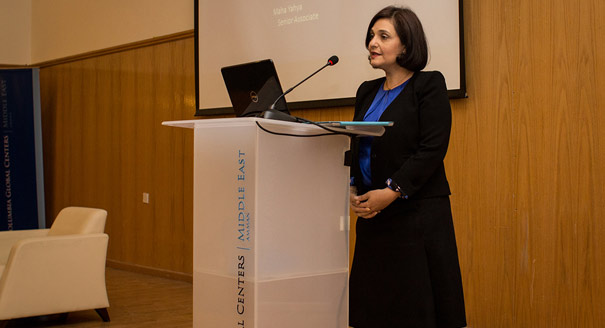Source: Columbia Global Centers | Middle East
Four years after the start of the Arab revolutions, “very little seems to have changed for the better. If anything, the world around us has exploded in Syria, Libya, Iraq, and Yemen,” said Professor Safwan Masri, EVP for Global Centers and Global Development at Columbia University, introducing Carnegie’s Maha Yahya.
Speaking at Columbia Global Centers | Middle East, Yahya discussed the overlapping and interlocking conditions that led up to the Arab uprisings and what has happened since, especially in light of issues like polarization identities and economic inequities. Yahya also shed light on the status of politics in the region and citizens’ demands.
This conference was recorded and hosted by Columbia Global Centers | Middle East.







.jpg)